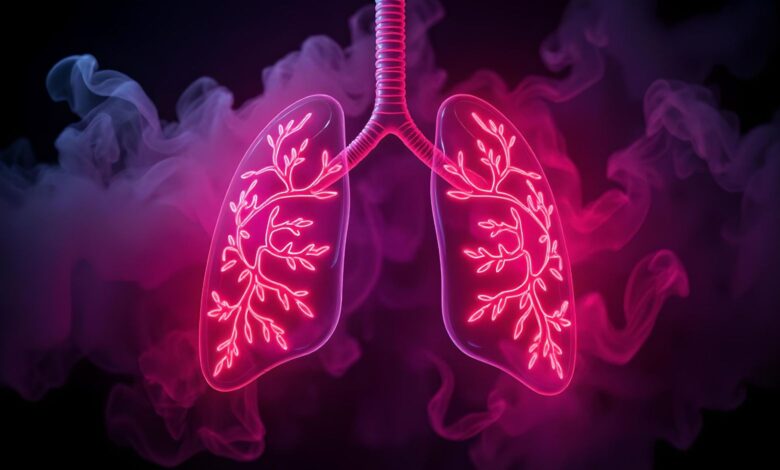Vaping While Pregnant: Clearing the Air on Risks and Rumors

By now, it’s no secret that smoking is bad news—especially for moms-to-be. But with the rise of vapes and e-cigarettes, there’s been some buzz about whether they’re a “safer” alternative. Spoiler alert: they’re not. Both traditional cigarettes and vapes are considered tobacco products, and both can contain nicotine.
A 2019 CDC report revealed that about 7 percent of women admitted to vaping either before, during, or shortly after pregnancy. Even more concerning, over 38 percent of those who vaped in their last trimester were using nicotine-based products.
So, what are the real vaping while pregnant risks? Let’s break it down!
Tiny Toxins: What Studies Say About Vaping While Pregnant
While research on vaping during pregnancy is still new, there are signs vaping can be harmful to a developing baby.
To understand the risks, it helps to know how vapes work. E-cigarettes, also called vapes, vape pens, or mods, deliver nicotine (which is addictive) alongside a cocktail of chemicals like propylene glycol, glycerol, and even heavy metals like lead. These substances may be less harmful than traditional cigarettes, but they’re far from harmless—especially for a growing baby.
Despite the lack of long-term studies, experts like the CDC and American College of Obstetricians and Gynecologists are crystal clear: vaping while pregnant isn’t safe. Some moms-to-be think it’s a better alternative to smoking, but it’s not FDA-approved for quitting, and it’s not risk-free.
If you’re wondering about the vaping while pregnant effects on a baby, here they are.
Pregnant women need to know the serious risks linked to tobacco use during pregnancy—especially smoking cigarettes. The potential complications are no joke: orofacial clefts, restricted fetal growth, placenta problems, preterm labor, low birth weight, and even higher rates of ectopic pregnancy and perinatal mortality. Smoking during pregnancy is estimated to cause 5–8 percent of preterm births, 13–19 percent of low-birth-weight term babies, and up to 34 percent of sudden infant death syndrome (SIDS) cases. Even secondhand smoke can raise the chance of having a low-birth-weight baby by 20 percent. And the risks don’t stop at birth—kids born to moms who smoked during pregnancy face higher odds of respiratory infections, asthma, colic, obesity, and even bone fractures.
Nicotine exposure, whether through cigarettes or smokeless tobacco, is no better. Infants born to moms who used smokeless tobacco during pregnancy experience issues like low birth weight, shorter gestation periods, stillbirth, and neonatal apnea, matching the risks seen with smoking. Nicotine crosses the placenta and can affect fetal brain and lung development, making its intake in any form a significant health concern.
When it comes to vaping, things get murkier. Heating e-liquid flavorants produces harmful substances like formaldehyde, acetone, heavy metals, and volatile organic compounds. While e-cigarettes might skip some of the harmful chemicals in traditional cigarettes, their effects—especially on developing lungs—are alarmingly similar, as suggested by animal studies. However, one vaping while pregnant study showed no difference in birth weight between exclusive vapers and non-smokers. But don’t let this give you false confidence—research is still in its early stages, and there’s much we don’t know. For now, steering clear of nicotine in all forms is the safest option for both mom and baby.
Pregnancy and Vaping: Time to Cut the Cloud?

According to a Women’s Health Issues survey, doctors are less likely to ask pregnant patients about vaping compared to smoking, and they’re not always great at following up to see if someone has quit vaping. This highlights a big communication gap. Some providers may not feel confident addressing vaping because it’s relatively new, or they may lump it together with smoking and fail to ask specific questions.
If you’re vaping while pregnant, the best thing you can do is be open with your doctor—just like you would about your diet, medications, or supplements. The more they know about your habits, the better they can help you have a healthy pregnancy. And here’s a common myth to clear up: going cold turkey on nicotine doesn’t cause your baby to experience withdrawal. Unlike substances like heroin, nicotine cessation doesn’t lead to fetal distress. That said, quitting isn’t easy—nicotine is notoriously addictive, and many quitting aids like patches and medications aren’t proven safe for pregnancy. Still, nearly half of female smokers quit shortly before or during pregnancy, even without these aids.
For those who find it hard to quit entirely, OB-GYNs may suggest vaping or nicotine patches as a temporary alternative to smoking cigarettes. But this isn’t a free pass. E-cigarettes still contain harmful substances like nicotine, heavy metals, and cancer-linked chemicals. While vaping might be safer than smoking traditional cigarettes, it’s far from risk-free. Plus, there’s no solid evidence that vaping helps people quit smoking—it can even make it harder to stop. With fruity flavors and fewer noticeable side effects (like lingering smells), vaping can feel more socially acceptable, keeping users hooked. The bottom line? Reducing or quitting altogether—with help from support programs or therapy—is the best move for both you and your baby.
Expecting the Best? Tip-top Tips for Quitting Vaping

Quitting smoking or vaping during pregnancy can be challenging, but with the proper support, it’s absolutely doable—and worth it for you and your baby. Start by letting your friends and family know you’re trying to quit. Ask them to be patient with you while you tackle withdrawal symptoms, and if they smoke or vape, kindly request they avoid doing so around you or the baby.
There are plenty of ways to quit, and finding what works for you might take some experimenting. You could go cold turkey or gradually cut back—both methods work better with the support of your doctor, loved ones, and resources like Quitline. Avoiding triggers, leaning on your support network, and exploring behavioral counseling can make a huge difference. Remember, every step you take toward quitting is progress!
Here’s the kicker: studies show most people who try to quit on their own don’t succeed long-term. But those who seek help—whether through counseling, support groups, or professional guidance—boost their chances significantly. Think of it like this: even the most successful people rely on experts to help them achieve their goals. So why not get a little help to conquer this one? You and your baby deserve it!
Conclusion
E-cigarettes have only been around for about 20 years, so we don’t have long-term data yet, but the short-term effects like lung issues, increased heart rate, and high blood pressure suggest vaping isn’t as harmless as it seems.
If you’re pregnant or planning to be, the best thing you can do for yourself and your baby is to quit all nicotine products. Many women find pregnancy a powerful motivator to kick old habits—it’s not just about quitting; it’s about creating a healthier lifestyle for you and your little one. Stick with it through delivery and breastfeeding, and you’ll be setting yourself up for a longer, healthier life while giving your baby the best possible start!



